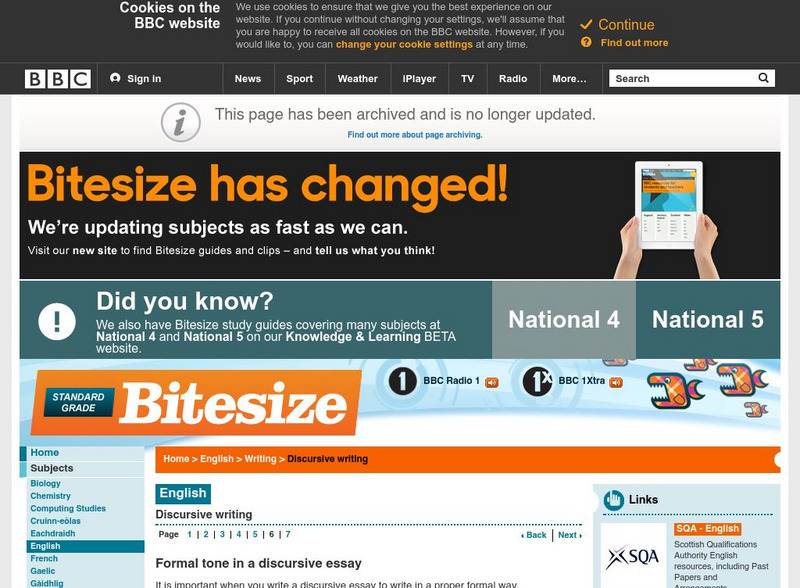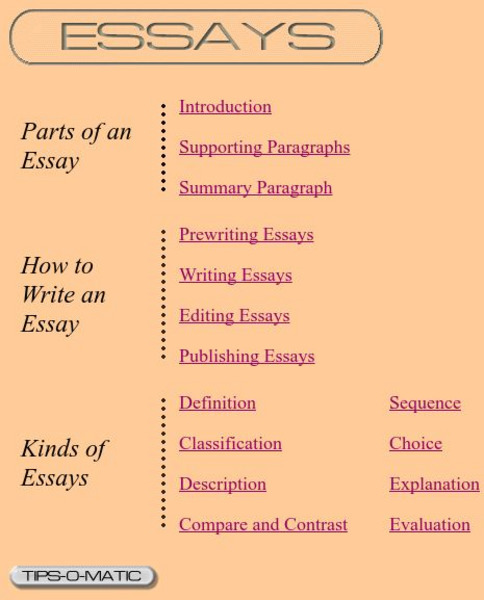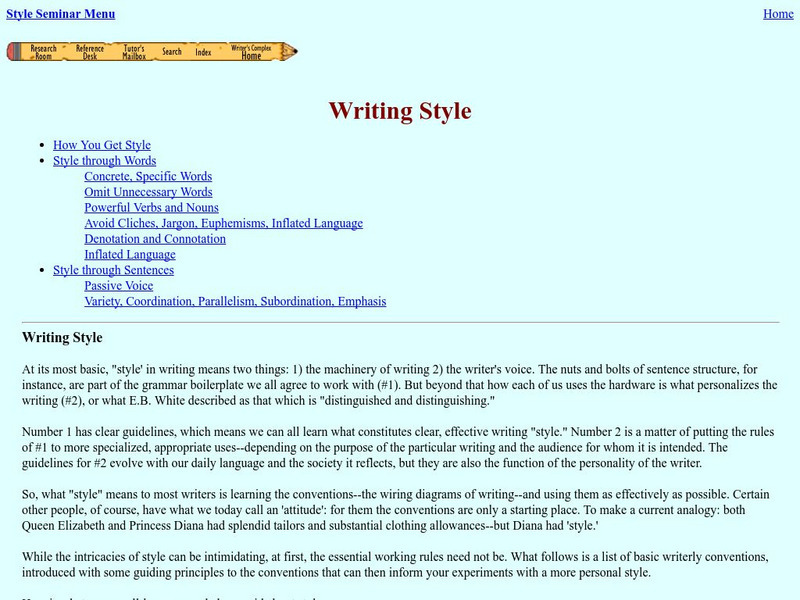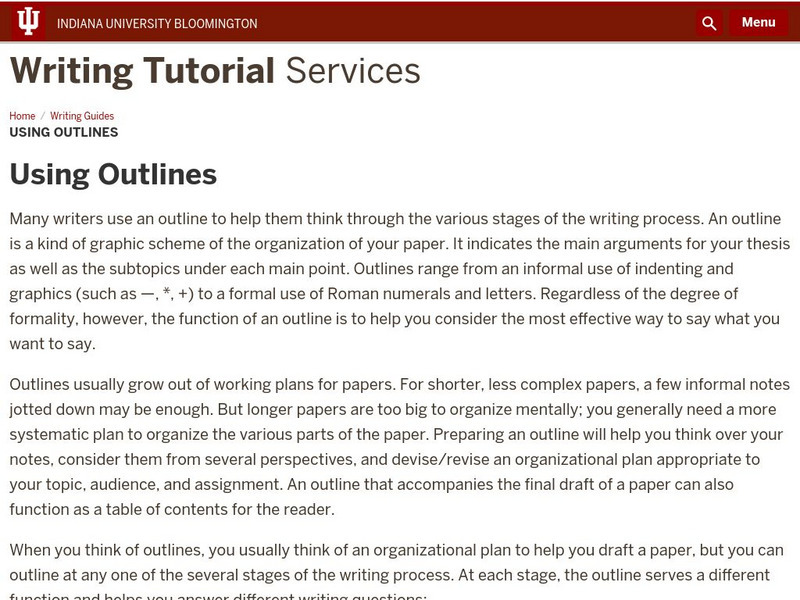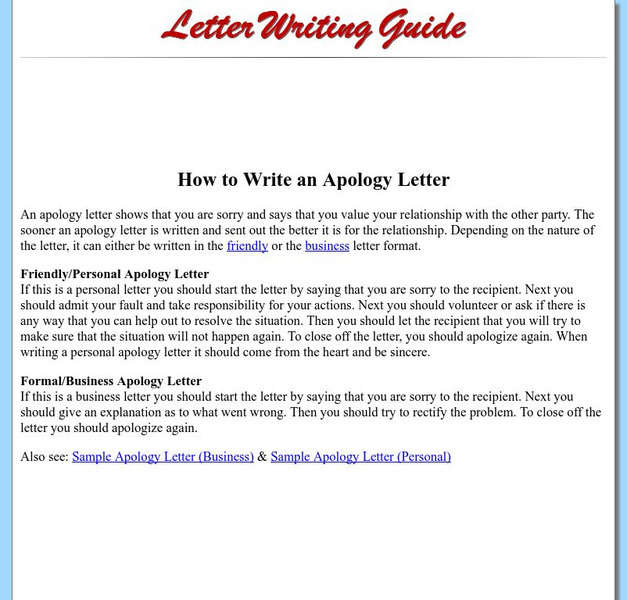Smithsonian Institution
Solomon G. Brown: Letter Writing
Personal correspondence in the form of letters is not as common as it once was. This resource presents an opportunity for you to introduce your class to letter writing and cover topics in social studies. Learners read a letter written in...
Liberty High School
Science Department Lab Report Format
Make sure your scientists are reporting their work effectively by providing them with a reference for their lab reports. The first few pages of this resource detail each element of a lab report, and the last few pages provide an example...
Curated OER
Beginner's Guide to Arabic
Introduce your language learners to Arabic. The most useful portion of this resource is the detailed information on the Arabic alphabet. Each letter is placed in a grid that shows the various ways to write it based on the situation...
TryEngineering
Boolean Algebra is Elementary
See how Boolean algebra relates to video games with a lesson that teaches young scholars how to use Boolean algebra to create rules for a virtual world. They test the rule base for consistency in groups.
BBC
Bbc Bitesize: Speaking and Listening: Standard English
Explains what standard English is and when it is used, the difference between formal and informal language, and non-standard forms of English such as those found in dialects.
Online Writing Lab at Purdue University
Purdue University Owl: Academic Writing: Levels of Formality
Basic information explaining how the context, i.e., the audience and your purpose, determines whether you should use formal, semi-formal, or informal language. The links on the sidebar provide much more information about formal academic...
Grammarly
Grammarly Handbook: Informalities
A list of style techniques (with examples) used to create an informal tone in a written piece.
BBC
Bbc Bitesize Revision: Formal Tone in a Discursive Essay
This page provides several tips for using formal tone in an essay. The tips are arranged into 'Do' and 'Do not use' categories.
ACT360 Media
Writing Den: Essay Writing Tips
All you want to know about writing essays, from prewriting to editing. Click on the tip-o-matic and find tips on anything dealing with grammar or writing.
Grammarly
Grammarly Blog: Anytime vs. Any Time
This page focuses on changes in language usage pertaining to "anytime" and "any time." In informal writing "anytime" can be used, but in formal writing "any time" is perferable. Examples are provided.
Grammarly
Grammarly Blog: Anymore vs. Any More
This page explains the use of "anymore" in informal writing, but in formal writing and anywhere else, "any more" is preferable. Examples are provided.
Grammarly
Grammarly Handbook: Cliches
This page focuse on cliches and explains why they should not be used in formal writing; it provides examples of other words to get the point across more clearly.
SUNY Empire State College
Empire State College: Writing Style Seminar
This detailed resource provides a good tutorial on writing style, whether informal or formal. It explains how to get style through word and sentence choice and includes lots of examples. W.9-10.1d & W.9-10.2e Style/tone/conv,...
Grammarly
Grammarly Blog: Consistent Point of View
This Grammarly Handbook resource reminds students how to write with a consistent point of view. Examples are provided to demonstrate how to fix a sentence that contains an inconsistent point of view.
Indiana University
Indiana University: Writing Guides: Using Outlines
Explains how outlines can be used at different stages in the writing project. Covers outlines developed during research, prewriting, and drafting. Also discusses the formal outline, which may be required with a finished paper. Gives...
Online Writing Lab at Purdue University
Purdue University Owl: Using Appropriate Language
Knowing the right language for your particular audience is a necessary skill for all writers. No one wants to offend their audience or appear as though they don't know their content. Learn these rules of thumb to become more familiar...
National Health Museum
Access Excellence: Writing Hypotheses
This informative page describes the true purposes of the hypothesis and how it should be used. Not only shows how they are written, but also helps students figure out the dependent versus independent variable.
Capital Community College Foundation
Guide to Grammar and Writing: Tone: A Matter of Attitude
This site focuses on tone and audience with examples.
Letter Writing Guide
How to Write an Apology Letter
This informational site for teachers and students explains the importance of a letter of apology. Then the article articulates the types of information to include in friendly/personal apology letters and in formal/business apology letters.
Grammarly
Grammarly Blog: Capitalization:titles of Books, Articles, Songs
This page explains the rules for capitalizing titles: In informal writing all words may be capitalized, but in formal writing, articles, conjunctions, and prepositions are NOT capitalized unless they begin a sentence. Examples are provided.
Lumen Learning
Lumen: Boundless Communications: Introduction
In this section of a textbook, students learn different techniques for writing an introduction. It provides links to information on the following topics: the role of an introduction, getting attention and interest, establishing...







